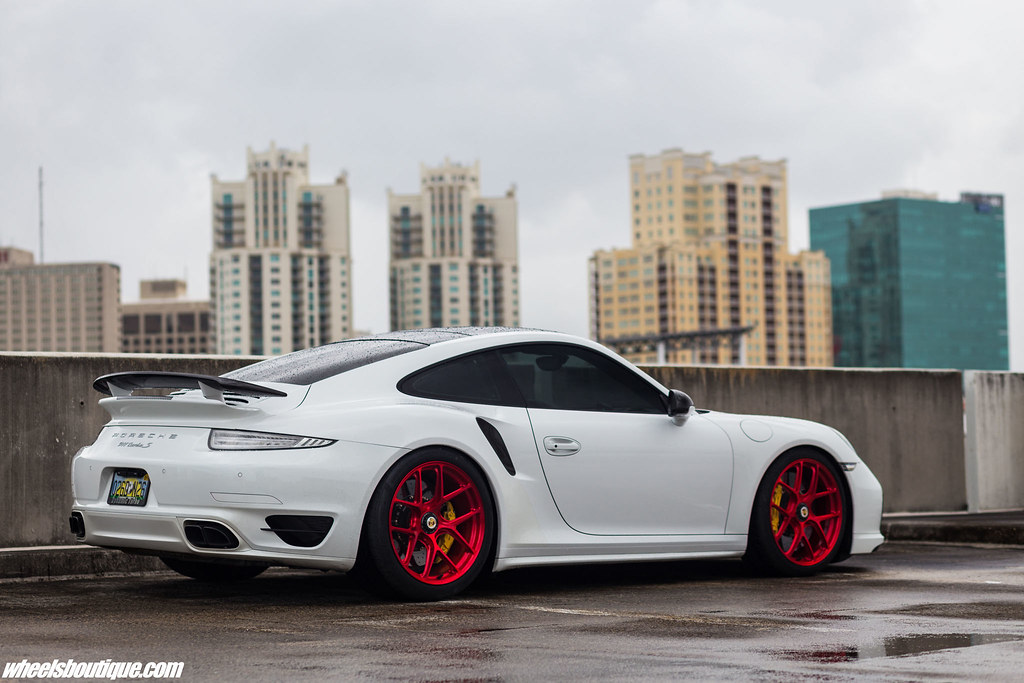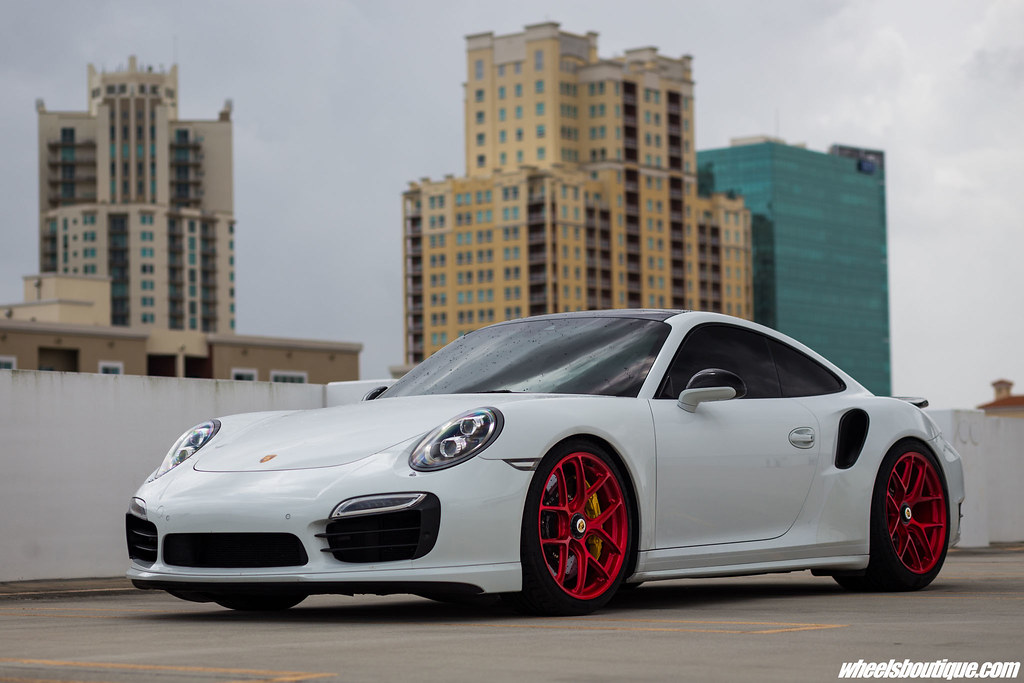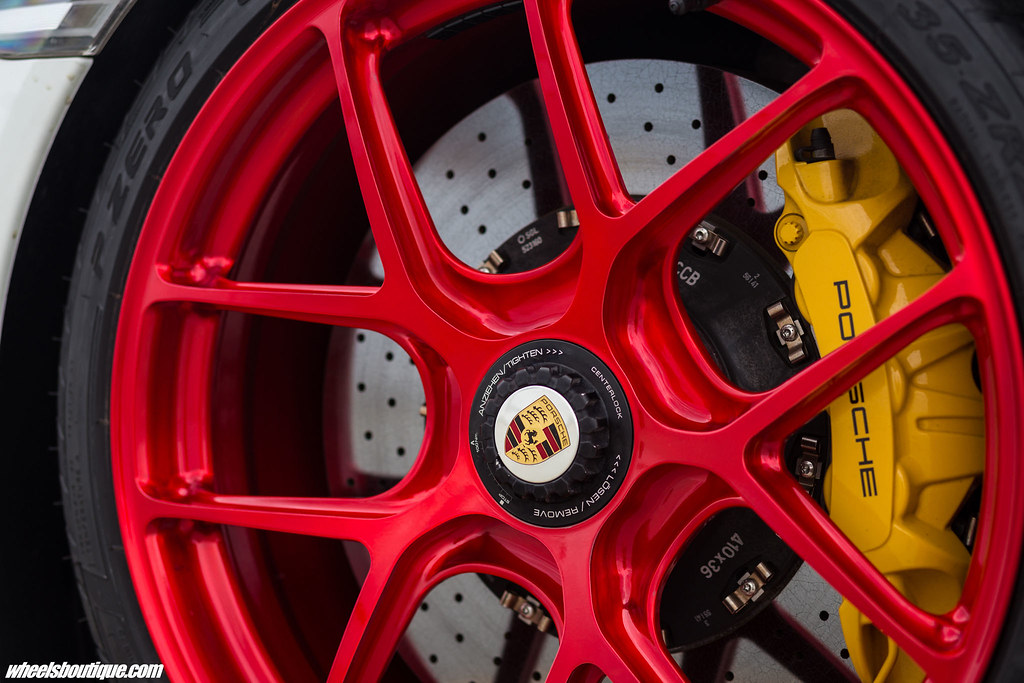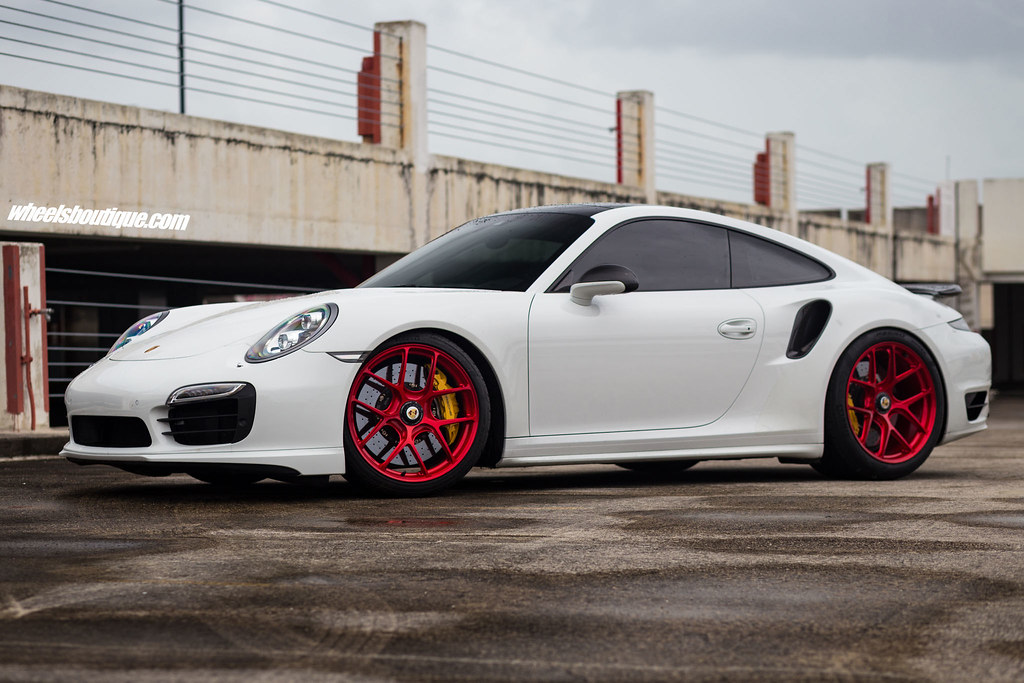Aftermarket wheels Pros and Cons?
#1
Instructor
Thread Starter
Hi all,
Looking for a little guidance.
I am looking at changing my wheels for something a little bigger.
I was wondering what the main cons are? Or if there are any pros.
I want to go for light weight forged wheels in 21 inch.
Is there an impact on performance? If there is any decrease in performance I'd not do it.
Lastly, is it advisable to also lower the car using after market springs at the same time (from a functional POV not just aesthetics).
Thanks all!
Looking for a little guidance.
I am looking at changing my wheels for something a little bigger.
I was wondering what the main cons are? Or if there are any pros.
I want to go for light weight forged wheels in 21 inch.
Is there an impact on performance? If there is any decrease in performance I'd not do it.
Lastly, is it advisable to also lower the car using after market springs at the same time (from a functional POV not just aesthetics).
Thanks all!
#3
Rennlist Member
I love the look of the 21's especially if the car is lowered slightly but I won't do it as I feel you give up some handling by going to the even more low profile tire. I like the 20's as a fair balance of look and performance.
I ran over sized tires on previous TT's and felt there was some loss of performance especially in the twisties. In a straight line most likely no issue but who drives these cars in a straight line only.
This is just my opinion and my own experience. maybe others have done as I have and have other perceptions.
I ran over sized tires on previous TT's and felt there was some loss of performance especially in the twisties. In a straight line most likely no issue but who drives these cars in a straight line only.
This is just my opinion and my own experience. maybe others have done as I have and have other perceptions.
#4
Rocky Mountain High
Rennlist Member
Rennlist Member
Straight line performance will be reduced if the wheel/tire construct is larger in diameter than the OE construct. If you manage that with the tire sizes and keep the diameter of the new wheel/tire construct the same as the OE sizes, then your acceleration won't be impacted. Even if it is slightly impacted, it's doubtful that it would be enough for you to notice.
#5
Addict
Rennlist Member
Rennlist Member
Join Date: Oct 2003
Location: Gone. On the Open Road
Posts: 16,328
Received 1,543 Likes
on
1,007 Posts
Straight line performance will be reduced if the wheel/tire construct is larger in diameter than the OE construct. If you manage that with the tire sizes and keep the diameter of the new wheel/tire construct the same as the OE sizes, then your acceleration won't be impacted. Even if it is slightly impacted, it's doubtful that it would be enough for you to notice.
The key is the average distribution of mass from the center of rotation.
Pick up a one pound weight in the palm of your hand.
Now stick that weight at the end of a 1' pole and pick it up only from the 'light' end of the pole.
Do it again with a 3' pole.
The latter is a lot harder.
The mass of a wheel and tire is dominated by the wheel's barrel and the mass of the tread. Move that mass further from the center of rotation and it takes more 'umph' to rotate the wheel.
This need for more 'umph' applies to acceleration, braking, and just cruising.
Going from 20" to 21" will likely cost you roughly 1-2% (this is an educated guess; not going to do the math) of your to-the-road horsepower assuming that the wheel and tire mass are close to the OE mass even if the overall diameter doesn't change (since the dominant wheel mass is 1/2" further away from the center and you need more metal in the barrel of the 21" than the 20")
With 500+ bhp you won't notice.
#6
Addict
Rennlist Member
Rennlist Member
Join Date: Oct 2003
Location: Gone. On the Open Road
Posts: 16,328
Received 1,543 Likes
on
1,007 Posts
#7
If you got 21", you probably need to drop the suspension or else run the risk of a high riding/truckish look. And then you are dealing with a drop.
Upsized wheels can feel slower and harsher. You may run into warranty hassles. Yes, Magnuson-Moss applies, but it's not fun to deal with.
A dropped Turbo with 21s does looks best though. No free lunch, however.
Upsized wheels can feel slower and harsher. You may run into warranty hassles. Yes, Magnuson-Moss applies, but it's not fun to deal with.
A dropped Turbo with 21s does looks best though. No free lunch, however.
Trending Topics
#8
Question for folks here with wheels on their minds...
If you move from the 20" Turbo S Wheel to a 20" wheel that is quite a bit lighter (e.g. BBS FI-R) does it require the suspension or other parts of the car to be tuned due to the weight change differences?
I've read a lot of positives online for switching to lighter wheels, but I'm wondering if there are negatives to switching to lighter weight wheels.
If you move from the 20" Turbo S Wheel to a 20" wheel that is quite a bit lighter (e.g. BBS FI-R) does it require the suspension or other parts of the car to be tuned due to the weight change differences?
I've read a lot of positives online for switching to lighter wheels, but I'm wondering if there are negatives to switching to lighter weight wheels.
#9
Rocky Mountain High
Rennlist Member
Rennlist Member
More-or-less this---^
The key is the average distribution of mass from the center of rotation.
Pick up a one pound weight in the palm of your hand.
Now stick that weight at the end of a 1' pole and pick it up only from the 'light' end of the pole.
Do it again with a 3' pole.
The latter is a lot harder.
The mass of a wheel and tire is dominated by the wheel's barrel and the mass of the tread. Move that mass further from the center of rotation and it takes more 'umph' to rotate the wheel.
This need for more 'umph' applies to acceleration, braking, and just cruising.
Going from 20" to 21" will likely cost you roughly 1-2% (this is an educated guess; not going to do the math) of your to-the-road horsepower assuming that the wheel and tire mass are close to the OE mass even if the overall diameter doesn't change (since the dominant wheel mass is 1/2" further away from the center and you need more metal in the barrel of the 21" than the 20")
With 500+ bhp you won't notice.
The key is the average distribution of mass from the center of rotation.
Pick up a one pound weight in the palm of your hand.
Now stick that weight at the end of a 1' pole and pick it up only from the 'light' end of the pole.
Do it again with a 3' pole.
The latter is a lot harder.
The mass of a wheel and tire is dominated by the wheel's barrel and the mass of the tread. Move that mass further from the center of rotation and it takes more 'umph' to rotate the wheel.
This need for more 'umph' applies to acceleration, braking, and just cruising.
Going from 20" to 21" will likely cost you roughly 1-2% (this is an educated guess; not going to do the math) of your to-the-road horsepower assuming that the wheel and tire mass are close to the OE mass even if the overall diameter doesn't change (since the dominant wheel mass is 1/2" further away from the center and you need more metal in the barrel of the 21" than the 20")
With 500+ bhp you won't notice.
#10
Instructor
Thread Starter
Thanks for the comments everyone. They're very helpful.
So the standard setup for the 991 turbo is:
20 x 9., 245/35/20 front
20 x 11.5, 305/30/20 rear.
I would only do it and go up to 21". The stock 20" looks great IMO.
Does the rolling diameter change if I were to go for the following setup with forged, light weight wheels (lighter than stock)?
21 x 9.5, 255/30/21
21 x 12.5, 325/25/21
Thanks all! I really like aftermarket wheels, but at the same time, don't want to hamper a performance car unnecessarily. Am I correct in assuming that with these setup, performance losses will be negligible?
So the standard setup for the 991 turbo is:
20 x 9., 245/35/20 front
20 x 11.5, 305/30/20 rear.
I would only do it and go up to 21". The stock 20" looks great IMO.
Does the rolling diameter change if I were to go for the following setup with forged, light weight wheels (lighter than stock)?
21 x 9.5, 255/30/21
21 x 12.5, 325/25/21
Thanks all! I really like aftermarket wheels, but at the same time, don't want to hamper a performance car unnecessarily. Am I correct in assuming that with these setup, performance losses will be negligible?
#11
Thanks for the comments everyone. They're very helpful.
So the standard setup for the 991 turbo is:
20 x 9., 245/35/20 front
20 x 11.5, 305/30/20 rear.
I would only do it and go up to 21". The stock 20" looks great IMO.
Does the rolling diameter change if I were to go for the following setup with forged, light weight wheels (lighter than stock)?
21 x 9.5, 255/30/21
21 x 12.5, 325/25/21
Thanks all! I really like aftermarket wheels, but at the same time, don't want to hamper a performance car unnecessarily. Am I correct in assuming that with these setup, performance losses will be negligible?
So the standard setup for the 991 turbo is:
20 x 9., 245/35/20 front
20 x 11.5, 305/30/20 rear.
I would only do it and go up to 21". The stock 20" looks great IMO.
Does the rolling diameter change if I were to go for the following setup with forged, light weight wheels (lighter than stock)?
21 x 9.5, 255/30/21
21 x 12.5, 325/25/21
Thanks all! I really like aftermarket wheels, but at the same time, don't want to hamper a performance car unnecessarily. Am I correct in assuming that with these setup, performance losses will be negligible?
Keep in mind - depending on the design and offset, a 21 inch wheel without a drop could end up looking a little funny.
#12
Thanks for the comments everyone. They're very helpful.
So the standard setup for the 991 turbo is:
20 x 9., 245/35/20 front
20 x 11.5, 305/30/20 rear.
I would only do it and go up to 21". The stock 20" looks great IMO.
Does the rolling diameter change if I were to go for the following setup with forged, light weight wheels (lighter than stock)?
21 x 9.5, 255/30/21
21 x 12.5, 325/25/21
Thanks all! I really like aftermarket wheels, but at the same time, don't want to hamper a performance car unnecessarily. Am I correct in assuming that with these setup, performance losses will be negligible?
So the standard setup for the 991 turbo is:
20 x 9., 245/35/20 front
20 x 11.5, 305/30/20 rear.
I would only do it and go up to 21". The stock 20" looks great IMO.
Does the rolling diameter change if I were to go for the following setup with forged, light weight wheels (lighter than stock)?
21 x 9.5, 255/30/21
21 x 12.5, 325/25/21
Thanks all! I really like aftermarket wheels, but at the same time, don't want to hamper a performance car unnecessarily. Am I correct in assuming that with these setup, performance losses will be negligible?
You're going up half an inch in front wheel width, and going up a full inch in rear wheel width.
Same with tires; 10mm wider in the front, but 20mm wider in the rear.
Someone may have pitched these sizes to you solely based on availability.
This will upset the balance and change the way the car behaves (more understeer)..
You might want to look into:
21 x 9.5, 265/30-21
21 x 12, 325/25-21
Also, see which tires you can find in those sizes.
No Michelins... would mean no aftermarket wheels for me.
Going by your proposed setup in the rear...
Your diameter goes up 4.9mm
You gain 2.45mm of ride height
you lose 2.45mm of arch gap
Going by your proposed setup in the front...
Your diameter goes up 6.9mm
You gain 3.45mm of ride height
You lose 3.45mm of arch gap
Last edited by Tfk; 10-26-2017 at 09:16 AM. Reason: science
#13
Rennlist Member
Focus on the diameter before anything. Calculators are available. Typically you want a diameter change of less than 3% for the ABS and a relative front to rear wheel diameter change of less than 1-2% to keep the differentials happy.
Sample tire size calculator, others available via google
https://www.tacomaworld.com/tirecalc
Tire compound makes more difference than width, so if you want cornering performance to improve, buy a track oriented tire. It will probably wear out quickly, and the very best dry condition street legal tires are often poor in hydroplaning performance.
On rim performance the stock wheels are heavy (and durable, perhaps bomb proof) so get something noticeably lighter and you’ll get a slight performance improvement despite the small diameter increase. Even the “flow forged” cast wheels can be light enough to achieve this so the forged wheels from reputable companies should be able to offer a benefit to you. I look for wheels where the manufacturer has achieved a test certification (like TUV or JWL).
A traditionally cast wheel will be cheap, relatively heavy, and a downgrade.
Sample tire size calculator, others available via google
https://www.tacomaworld.com/tirecalc
Tire compound makes more difference than width, so if you want cornering performance to improve, buy a track oriented tire. It will probably wear out quickly, and the very best dry condition street legal tires are often poor in hydroplaning performance.
On rim performance the stock wheels are heavy (and durable, perhaps bomb proof) so get something noticeably lighter and you’ll get a slight performance improvement despite the small diameter increase. Even the “flow forged” cast wheels can be light enough to achieve this so the forged wheels from reputable companies should be able to offer a benefit to you. I look for wheels where the manufacturer has achieved a test certification (like TUV or JWL).
A traditionally cast wheel will be cheap, relatively heavy, and a downgrade.
Last edited by ace37; 10-26-2017 at 02:47 PM.
#14
Rennlist Member
I think the 20" vs 21" has been covered above, but also research the tires available and you will see that higher performance tires like Cup2 are not going to be available in the sizes you want.
I'd stick with 20", but I also do LOVE the Techart lowering springs.
#15
Former Vendor
I run HRE P101 wheels in the stock size, and if I was doing it over, I'd go with the newer lightweight version.
I think the 20" vs 21" has been covered above, but also research the tires available and you will see that higher performance tires like Cup2 are not going to be available in the sizes you want.
I'd stick with 20", but I also do LOVE the Techart lowering springs.
I think the 20" vs 21" has been covered above, but also research the tires available and you will see that higher performance tires like Cup2 are not going to be available in the sizes you want.
I'd stick with 20", but I also do LOVE the Techart lowering springs.
With that all said for the 991 Turbo I have 2 fitments available, then I have some photos to share.
20x9 ET44 - 17.20LBS
20x12 ET45 - 20.30LBS
21x9.5 ET43 - 17.40LBS
21x12.5 ET48 - 23.50LBS
Here's a set of 20" R101 Lightweight wheels from Wheels Boutique in Brushed Red:





